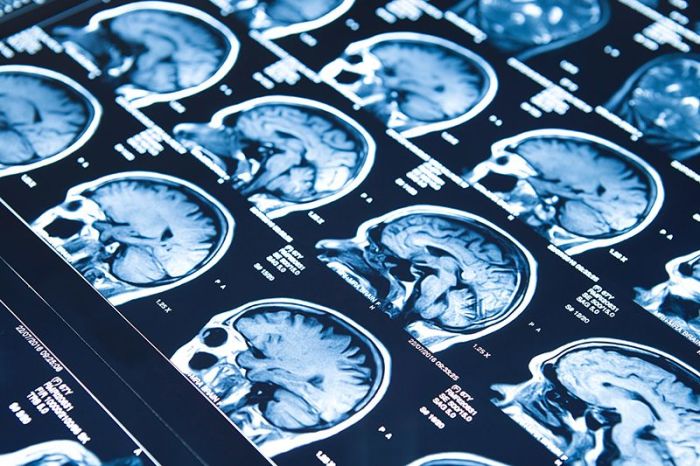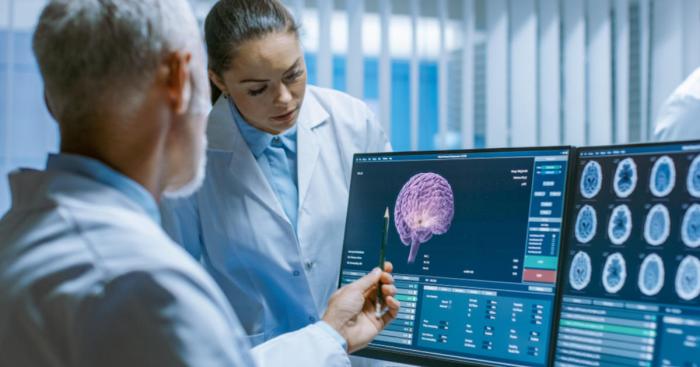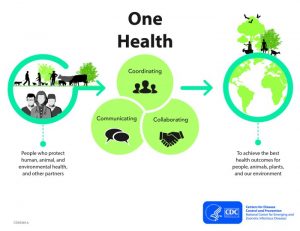
Diving into the realm of neuroscience research for brain injuries, this introduction sets the stage for a fascinating exploration of the latest advancements in the field. From groundbreaking studies to innovative technologies, the landscape of brain injury research is constantly evolving, offering hope and possibilities for improved patient outcomes.
As we delve deeper into the details, we uncover the intricate ways in which neuroscience research is revolutionizing the way we approach and treat brain injuries, paving the way for a brighter future in healthcare.
Advances in neuroscience research for brain injuries
Neuroscience research for brain injuries has seen significant advancements in recent years, leading to improved understanding, diagnosis, and treatment of various brain-related conditions. The latest technologies used in this field have revolutionized how we approach brain injuries, offering hope for better outcomes for patients.
Latest Technologies in Neuroscience Research
- Neuroimaging techniques such as functional magnetic resonance imaging (fMRI) and diffusion tensor imaging (DTI) have allowed researchers to visualize brain activity and connectivity in unprecedented detail.
- Electrophysiological methods like electroencephalography (EEG) and magnetoencephalography (MEG) help in studying brain function and identifying abnormalities in patients with brain injuries.
- Advancements in molecular biology and genetics have enabled scientists to explore the genetic basis of brain injuries and develop targeted therapies.
Breakthrough Studies in Brain Injury Research
- A study published in
a prestigious journal
demonstrated the effectiveness of a novel drug in promoting neuroregeneration after traumatic brain injury, offering new hope for patients with severe brain damage.
- Researchers at
a renowned research institution
discovered a biomarker that can predict long-term outcomes in patients with concussions, allowing for personalized treatment strategies.
- Another groundbreaking study revealed the role of neuroinflammation in exacerbating brain injuries, leading to the development of anti-inflammatory therapies that can improve patient recovery.
Contribution of Neuroscience Research to Patient Outcomes
- By uncovering the underlying mechanisms of brain injuries, neuroscience research has paved the way for targeted interventions that can enhance recovery and reduce long-term disabilities in patients.
- Early detection of brain injuries through advanced imaging techniques has led to prompt medical interventions, improving survival rates and minimizing neurological deficits in affected individuals.
- Personalized treatment approaches based on genetic factors and biomarkers identified through research have significantly improved the prognosis and quality of life for patients with brain injuries.
Healthcare services
Access to quality healthcare services is crucial for individuals with brain injuries as it plays a significant role in their recovery and overall well-being. Healthcare providers are essential in delivering comprehensive care to patients with brain injuries, ensuring that they receive the necessary medical attention, therapies, and support to facilitate their recovery process.
These services are tailored to meet the specific needs of individuals recovering from brain injuries, taking into account their unique challenges and requirements.
Role of healthcare providers
Healthcare providers, including doctors, nurses, therapists, and specialists, play a crucial role in the care of patients with brain injuries. They work together to assess the extent of the injury, develop treatment plans, and monitor progress throughout the recovery process.
Healthcare providers provide medical interventions, therapies, and support services to address physical, cognitive, emotional, and social needs of individuals with brain injuries.
Tailored healthcare services
Healthcare services for individuals recovering from brain injuries are tailored to meet their specific needs and challenges. This may include a combination of medical treatments, rehabilitation therapies, counseling, and support services to address physical, cognitive, emotional, and social aspects of recovery.
The goal is to provide comprehensive care that promotes optimal recovery, functional independence, and quality of life for individuals with brain injuries.
Medical care
Individuals with brain injuries have access to a range of medical care options aimed at treating their condition and promoting recovery.
Types of medical care
- Emergency care: Immediate medical attention provided to stabilize the patient and prevent further damage.
- Neurosurgery: Surgical interventions to repair physical damage to the brain, such as hematomas or skull fractures.
- Medication management: Prescribing medications to manage symptoms like seizures, headaches, or mood disorders.
- Rehabilitation therapy: Physical, occupational, and speech therapy to help patients regain lost functions and improve quality of life.
Multidisciplinary approach to medical care
Medical care for brain injury patients often involves a multidisciplinary team of healthcare professionals working together to address various aspects of the patient’s condition.
- Neurologists and neurosurgeons for medical interventions and surgical procedures.
- Physical therapists for mobility and motor function improvement.
- Occupational therapists for assistance with daily living activities and work-related tasks.
- Speech therapists for communication and swallowing difficulties.
- Psychologists or psychiatrists for mental health support and counseling.
Rehabilitation programs
Rehabilitation programs play a crucial role in the recovery of individuals with brain injuries, focusing on restoring lost functions and promoting independence.
- Cognitive rehabilitation: Exercises and activities to improve memory, attention, and problem-solving skills.
- Physical therapy: Exercises to improve strength, balance, and coordination.
- Occupational therapy: Training to regain skills for daily living, work, and leisure activities.
- Speech therapy: Techniques to improve communication, language, and swallowing abilities.
Health insurance
Health insurance coverage plays a crucial role in providing financial support for individuals with brain injuries, ensuring they have access to necessary treatments and care.
Significance of health insurance coverage
Having health insurance coverage for brain injuries can help alleviate the financial burden on patients and their families, making it easier to afford costly medical treatments, rehabilitation, and therapy.
Challenges in navigating health insurance policies
- Understanding coverage limitations and exclusions specific to brain injury treatments.
- Dealing with pre-authorization requirements for certain procedures or therapies.
- Navigating complex billing processes and potential denials of claims.
Tips for ensuring adequate health insurance coverage
- Review your health insurance policy carefully to understand coverage for brain injury-related treatments.
- Communicate effectively with your insurance provider to clarify any uncertainties or questions regarding coverage.
- Work with healthcare providers to ensure proper documentation and justification for treatments to prevent claim denials.
- Consider supplemental insurance or advocacy services to help navigate the complexities of health insurance policies.
Medical research
Medical research plays a crucial role in advancing treatments for brain injuries, constantly striving to improve patient outcomes and quality of life. Through ongoing studies and clinical trials, researchers are able to explore new avenues for treatment and better understand the complex mechanisms underlying brain injury.
Recent discoveries in medical research
- One recent breakthrough in medical research is the development of neuroprotective strategies that aim to minimize secondary damage following a brain injury. These strategies focus on reducing inflammation, promoting cell survival, and enhancing the brain’s natural healing processes.
- Another significant discovery is the use of stem cell therapy for brain injuries, showing promising results in promoting tissue repair and regeneration. This innovative approach holds great potential for restoring lost function and improving recovery outcomes in patients.
- Furthermore, advancements in imaging technology have revolutionized the diagnosis and monitoring of brain injuries, allowing for more accurate assessments of the extent of damage and the effectiveness of treatment interventions.
Medical research collaborations
- Collaborations between researchers, healthcare institutions, and industry partners play a vital role in driving innovation in the management of brain injuries. By sharing knowledge, resources, and expertise, these collaborations enable the development of novel treatment strategies and interventions.
- Multidisciplinary research teams, comprising experts from various fields such as neurology, neurosurgery, radiology, and rehabilitation, work together to explore holistic approaches to brain injury treatment. This collaborative effort leads to the integration of diverse perspectives and the implementation of comprehensive care plans for patients.
Health facilities
Specialized health facilities designed to handle brain injury cases are equipped with advanced medical technology and specialized healthcare professionals to provide comprehensive care.
Features of specialized health facilities
- State-of-the-art diagnostic equipment for accurate assessment of brain injuries
- Specialized neurology and neurosurgery departments with experienced medical staff
- Rehabilitation centers for physical and cognitive therapy tailored to individual needs
- 24/7 monitoring and access to emergency care for any sudden complications
Role of health facilities in providing care for brain injuries
- Acute care: Health facilities play a crucial role in providing immediate medical attention and interventions to stabilize patients after a brain injury.
- Long-term support: Health facilities offer ongoing therapy, counseling, and support services to help individuals with brain injuries recover and adapt to their new normal.
- Comprehensive care: Health facilities coordinate multidisciplinary teams to address the physical, emotional, and cognitive aspects of brain injury rehabilitation.
Ensuring a safe environment for brain injury patients
- Strict safety protocols to prevent falls, infections, and other complications during the recovery process
- Specialized units with quiet and calm environments to minimize sensory overload and promote healing
- Patient-centered care approach to address individual needs and preferences for a comfortable and supportive environment
Health clinic
Health clinics that cater to individuals with brain injuries offer a range of services aimed at providing comprehensive care and support for patients in need.
Services Offered
- Medical evaluations and assessments to diagnose the extent of the brain injury and develop a personalized treatment plan.
- Physical therapy to improve motor skills and mobility.
- Occupational therapy to help patients relearn daily living tasks and improve cognitive functions.
- Speech therapy to address communication difficulties and enhance language skills.
- Counseling and psychological support for patients and their families to cope with the emotional impact of brain injuries.
Importance of Early Intervention and Monitoring
Early intervention and regular monitoring at health clinics are crucial for brain injury patients to ensure timely and effective treatment. Monitoring allows healthcare providers to track progress, adjust treatment plans as needed, and address any complications that may arise.
Specialized Treatments Available
- Neurofeedback therapy to train the brain and improve cognitive function.
- Virtual reality therapy to enhance motor skills and cognitive abilities through engaging simulations.
- Neuropsychological rehabilitation to address cognitive deficits and improve overall brain function.
- Transcranial magnetic stimulation to stimulate brain activity and promote recovery.
Healthcare tips
As a caregiver of individuals recovering from brain injuries, it is essential to provide them with the necessary support and guidance to aid in their recovery process. Lifestyle modifications and effective navigation of the healthcare system can significantly impact their overall well-being and progress.
Here are some practical tips to consider:
Practical Tips for Caregivers
- Establish a routine: Creating a structured daily routine can help individuals recovering from brain injuries feel more secure and organized.
- Encourage physical activity: Engaging in light exercises or physical activities can promote circulation and improve mood.
- Ensure proper nutrition: A balanced diet rich in nutrients can support brain health and overall recovery.
- Monitor medication: Keep track of medication schedules and ensure they are taken as prescribed by healthcare professionals.
Lifestyle Modifications for Brain Injury Recovery
- Get enough rest: Adequate sleep is crucial for the healing process and brain function.
- Reduce stress: Implement stress-reducing techniques such as meditation or deep breathing exercises to support recovery.
- Stay connected: Social interaction and support from loved ones can positively impact recovery and mental well-being.
- Avoid alcohol and tobacco: Substance abuse can hinder recovery and exacerbate symptoms of brain injuries.
Navigating the Healthcare System Effectively
- Communicate effectively: Clearly communicate with healthcare providers about the individual’s symptoms, progress, and concerns.
- Ask questions: Do not hesitate to ask questions or seek clarification about treatment plans, medications, or any other healthcare-related information.
- Keep detailed records: Maintain organized records of medical appointments, test results, and treatment plans for easy reference and tracking.
- Seek support: Utilize resources such as support groups or mental health services to cope with the challenges of caregiving and navigating the healthcare system.
Health systems

Health systems play a crucial role in ensuring coordinated care for individuals with brain injuries. These systems encompass a network of healthcare providers, facilities, and services that work together to deliver comprehensive care to patients.
Challenges and opportunities
- Challenges:
- Fragmented care: Brain injury patients often require multidisciplinary care from various specialists, leading to fragmented and disjointed treatment plans.
- Lack of standardized protocols: Health systems may struggle with the absence of standardized protocols for brain injury management, resulting in inconsistent care practices.
- Resource constraints: Limited resources, both in terms of funding and healthcare professionals, can pose challenges in meeting the complex needs of brain injury patients.
- Opportunities:
- Integration of care: Health systems can work towards integrating care by establishing care coordination teams to ensure seamless communication and collaboration among healthcare providers.
- Utilization of technology: Adoption of telemedicine and digital health solutions can enhance access to care for brain injury patients, especially in remote or underserved areas.
- Evidence-based practices: Health systems can leverage evidence-based practices and clinical guidelines to standardize care protocols and improve outcomes for individuals with brain injuries.
Innovative approaches
- Telehealth services: Health systems are increasingly incorporating telehealth services to provide remote consultations, follow-ups, and monitoring for brain injury patients, improving access to care.
- Virtual reality therapy: Some health systems are exploring the use of virtual reality therapy as a rehabilitation tool for brain injury patients, enhancing neuroplasticity and functional recovery.
- Community partnerships: Collaborating with community organizations and support groups can help health systems extend their reach and provide holistic care for individuals with brain injuries beyond clinical settings.
Last Recap

In conclusion, the journey through the realm of neuroscience research for brain injuries has been enlightening and inspiring. From the importance of healthcare services to the impact of ongoing medical research, the collaborative efforts in this field are shaping a better tomorrow for individuals facing brain injuries.
As we look towards the horizon of possibilities, one thing remains clear – the potential for transformative change in the realm of brain injury treatment is within reach, thanks to the relentless pursuit of knowledge and innovation in neuroscience research.
Commonly Asked Questions
How do the latest technologies impact neuroscience research for brain injuries?
The latest technologies are revolutionizing neuroscience research by providing new insights into the complexities of brain injuries, allowing researchers to develop more effective treatment strategies.
What are some challenges individuals might face in navigating health insurance policies for brain injury treatments?
Patients may encounter difficulties in understanding coverage options, dealing with claim denials, or finding providers who accept their insurance for specialized brain injury care.
How can caregivers support individuals recovering from brain injuries?
Caregivers can offer emotional support, assist with daily activities, ensure medication adherence, and help in coordinating medical appointments for a smoother recovery process.





